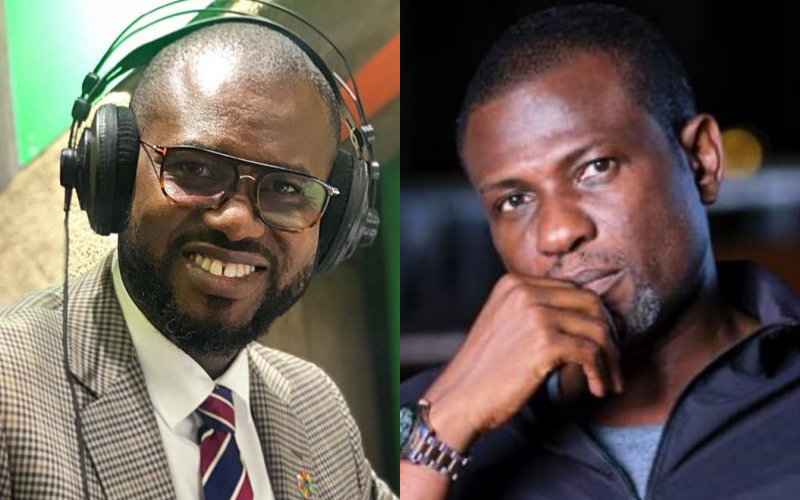Mark Okraku-Mantey’s critique of Abeiku Santana’s dual roles highlights a fundamental conflict between public service and private endeavors, raising questions about propriety, productivity, and potential conflicts of interest. Santana’s simultaneous engagement as Deputy CEO of the Ghana Tourism Authority (GTA) and a radio host on Okay FM has drawn Okraku-Mantey’s scrutiny, specifically regarding the use of official working hours for private pursuits. Okraku-Mantey argues that Santana’s radio show during what should be dedicated to his public service role constitutes an unacceptable breach of protocol and potentially a misuse of public resources, including time and potentially even resources like office equipment or influence. This concern resonates with broader public discourse about the ethical responsibilities of those holding public office, where unwavering dedication to serving the public interest is paramount.
The crux of Okraku-Mantey’s argument lies in the principle of undivided attention and dedication required of public servants. He contends that holding a demanding position within a public institution like the GTA necessitates the allocation of one’s full working hours to the responsibilities and duties associated with that role. Engaging in other professional activities, especially during official working hours, suggests a diversion of focus and resources that could potentially compromise the effectiveness and efficiency of the public servant’s primary role. This concern is not merely about the number of hours spent but also about the potential division of attention and the possibility of prioritizing personal interests over public duties. Okraku-Mantey’s assertion rests on the expectation that public officials should be fully immersed in their public roles, ensuring that their time and energy are dedicated to fulfilling their obligations to the public.
Okraku-Mantey draws a parallel with his own experience as a former Deputy Minister-Designate, emphasizing the stringent regulations governing the conduct of public officials. He cites Public Commission Laws, which explicitly prohibit the use of public working hours for any other employment. These regulations are designed to prevent conflicts of interest, ensure dedicated service to the public, and maintain the integrity of public office. By invoking his own experience and referring to established regulations, Okraku-Mantey reinforces the notion that Santana’s actions are not simply a matter of personal preference but a potential violation of established protocols and ethical guidelines. This legal and ethical framework underscores the importance of prioritizing public service over personal gain or other professional pursuits while holding public office.
Furthermore, Okraku-Mantey’s critique implicitly raises the question of potential conflicts of interest that might arise from Santana’s dual roles. As a radio host, Santana wields influence and has a platform to shape public opinion. Simultaneously holding a leadership position within the GTA creates a potential scenario where his media platform could be used to advance personal interests or the interests of his radio station, potentially at the expense of the GTA or the public interest it serves. This intertwining of roles creates an environment ripe for potential conflicts, even if unintended, and underscores the need for clear boundaries and ethical guidelines to prevent the blurring of lines between public service and private interests.
Despite his pointed criticism, Okraku-Mantey tempers his remarks with a gesture of goodwill, extending congratulations to his colleagues in the creative arts industry recently appointed to public office. This concluding sentiment indicates a distinction between his critique of a specific practice and a broader support for individuals within the creative sector assuming public roles. His acknowledgment of these appointments suggests a belief in the potential for positive contributions from professionals within the creative industry within the realm of public service, further emphasizing his concern is not about individuals but about upholding the standards and ethics of public office.
In conclusion, Mark Okraku-Mantey’s concerns about Abeiku Santana’s dual employment raise critical questions about the responsibilities and conduct of public officials. His argument centers on the principle of dedicated public service, the adherence to established regulations, and the potential for conflicts of interest. By drawing on his own experience and referencing Public Commission Laws, Okraku-Mantey highlights the importance of maintaining ethical standards and upholding the integrity of public office. While acknowledging the positive contributions individuals from the creative arts can make in public service, his critique underscores the need for clear guidelines and unwavering dedication to the responsibilities associated with holding public office, placing the public interest above personal or private pursuits.


